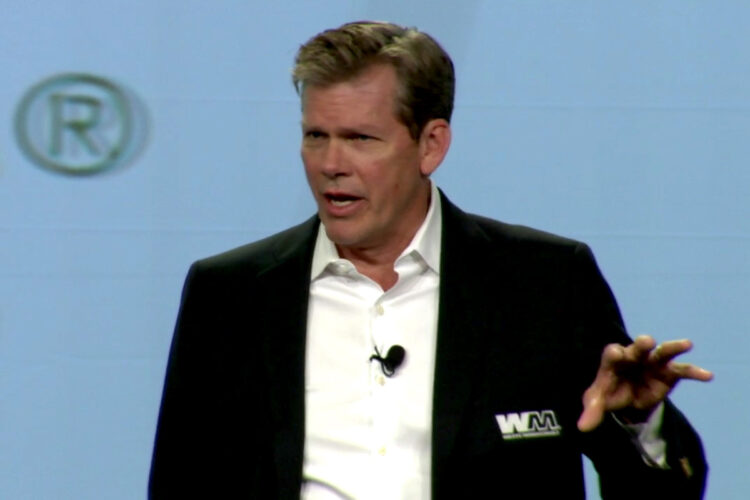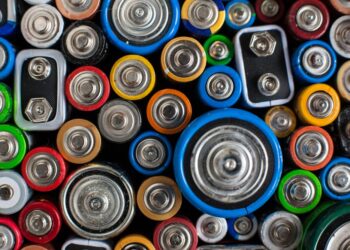As protests continue across the country over police killings of black citizens, large U.S. recycling companies have issued statements condemning racism and reaffirming their commitments to diversity and inclusion.
“The 45,000 individuals who make up the Waste Management family stand united against racism,” wrote Jim Fish, president and CEO of Houston-headquartered Waste Management (WM), the largest garbage and recycling company in North America. “The events of this last week have shown that a very ugly part of our past is still with us in our present. If we want our country to thrive, and as a proud American I very much do, we must come together and do what we can to rid this world of racism once and for all.”
“We all have a choice to make. We can choose to be part of the solution or stand on the sidelines. We can choose to raise our voices or remain silent,” his statement continued. “I choose to be a part of the solution. I choose to raise my voice. I choose to put people first. I choose to make inclusion and diversity central to everything we do at WM. And I choose to teach my daughters that racism is not natural, it is learned. The lessons we teach today’s youth will shape their views and our society for generations to come.”
A leader at Phoenix-based Republic Services, the second-largest waste and recycling hauler in North America, issued a statement addressing the killing of George Floyd at the hands of a Minneapolis police officer and calling for conversations about race, equity and injustice.
“The riots and protests are likely to subside in the coming days. What will not change in the near term is the underlying racism that led to Mr. Floyd’s death,” wrote Jon Vander Ark, president of Republic Services. “The sad reality is that this tragic incident was not an isolated event. It shines a light on black Americans who don’t live in a society with equal justice. As an employer of people from all backgrounds, we are committed to maintaining an environment where every one of you can come to work, feel safe, and be at your best.”
“In this moment, many of you, especially our black colleagues, are feeling angry, confused, and afraid,” his statement continued. “If one of us is struggling, we are all struggling. While we can’t fix society, change can start with us. We can support one another by having open conversations about this topic. As a first step, we will be inviting our leaders to engage in a conversation tomorrow about race, equity, and injustice with the expectation that it will spark meaningful dialogue across our organization.”
San Francisco-headquartered hauler and MRF operator Recology on June 1 posted on social media with the #BlackLivesMatter hashtag that the company’s employee owners “stand in solidarity with the black community; our colleagues, customers, municipal partners – and all affected by racism and injustice.”
“In this moment, many of you, especially our black colleagues, are feeling angry, confused, and afraid. If one of us is struggling, we are all struggling.”
– Jon Vander Ark, president of Republic Services.
Downstream processors and users of recovered materials have also weighed in.
On June 2, Strategic Materials, a Houston-based company with facilities around the U.S. that sort and clean-up recovered glass for use by manufacturers, wrote on Twitter that “If you’re not part of the solution, you’re part of the problem. We stand together. We will continue to do our part to end racial discrimination.”
On June 4, KW Plastics, a plastics reclaimer in Troy, Ala., posted on Facebook that KW and related companies are “committed to treating all employees with dignity and respect. We will not tolerate harassment or hostility of any kind. We will continue to work every day to provide a safe work environment for our employees and be a responsible corporate citizen and community partner.” KW is the world’s largest recycler of polyolefin plastics.
In the fiber arena, International Paper (IP) Chairman and CEO Mark Sutton wrote a letter to company employees on June 1. The Memphis, Tenn.-based company produces cardboard boxes and other products from OCC and other types of recovered fiber.
“There is no place in our company, or in society, for racism or any form of discrimination,” Sutton wrote, noting that IP also supported a May 30 statement from the Business Roundtable, a group of CEOs of major U.S. companies. “Recent events in the U.S. are troubling and a shocking reminder that there is much more work to be done in ensuring the health, safety and welfare of every individual.”





























